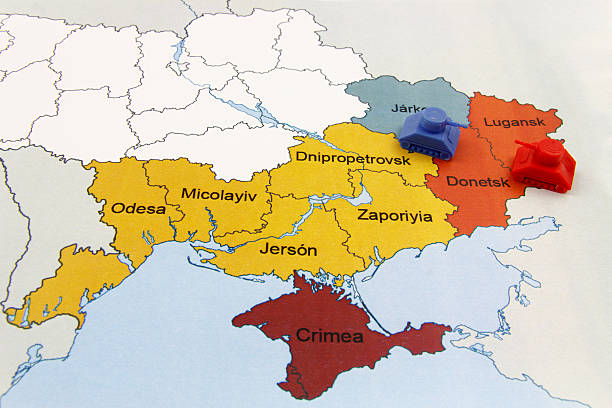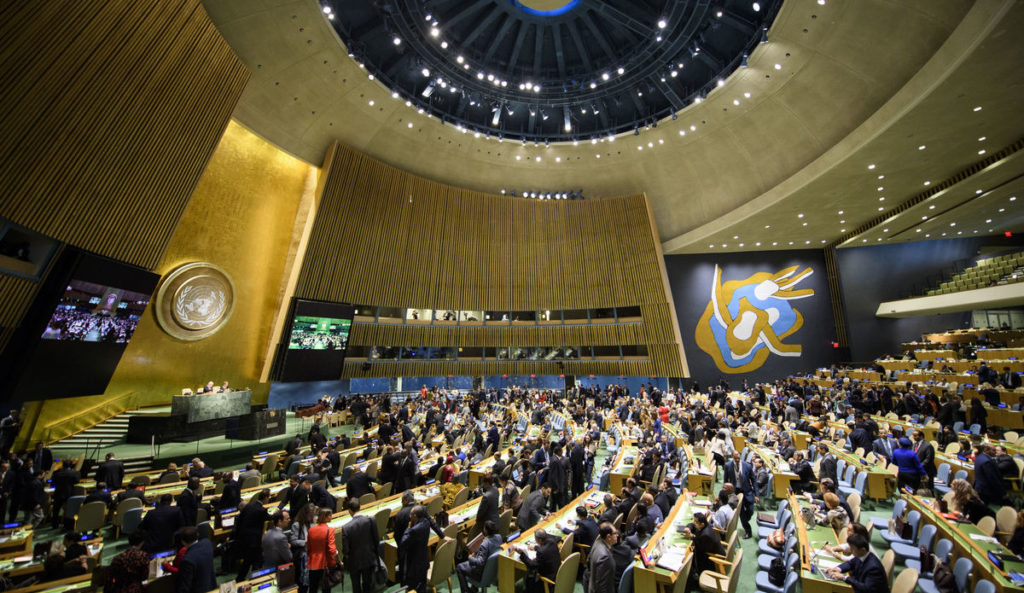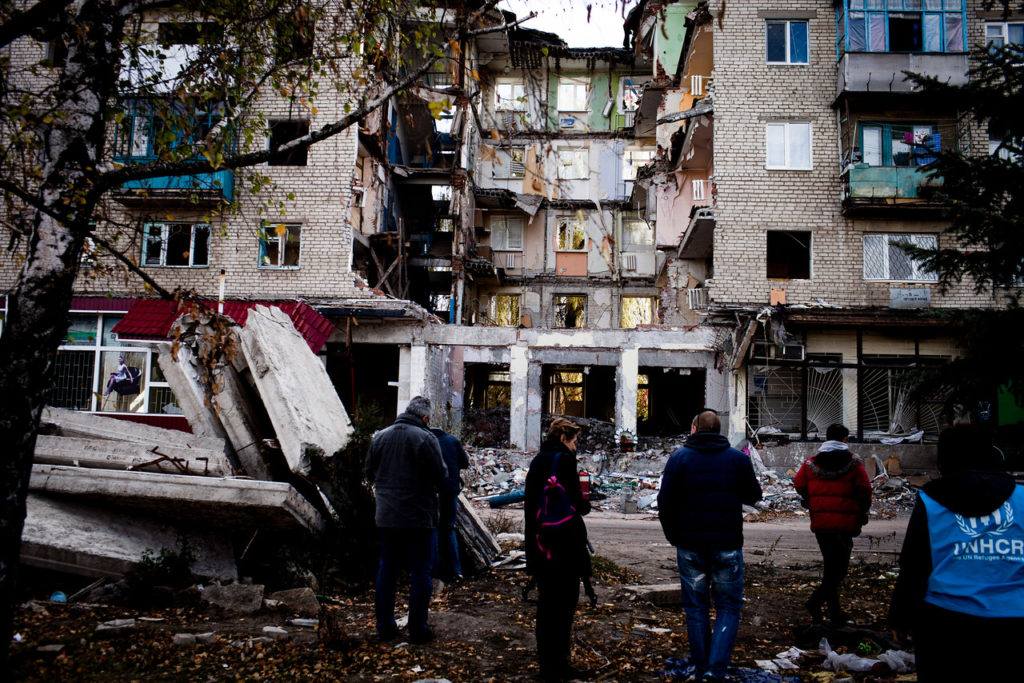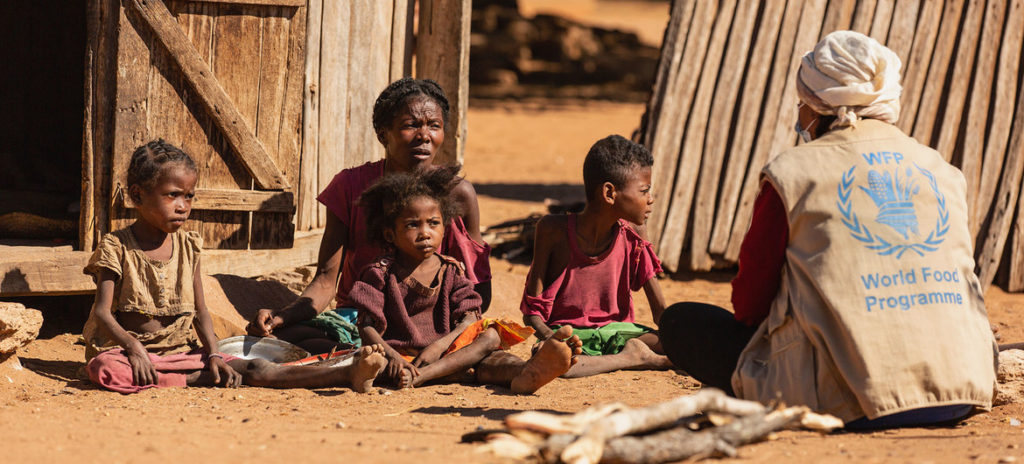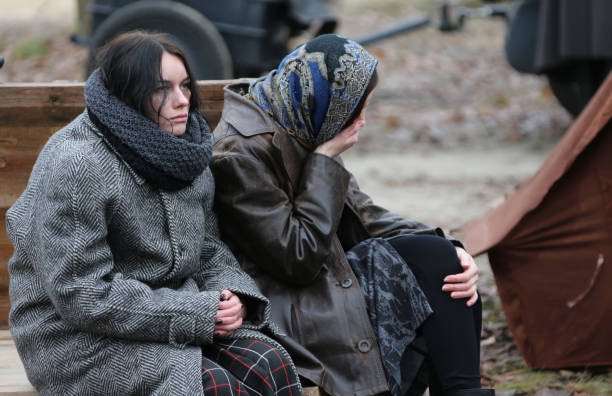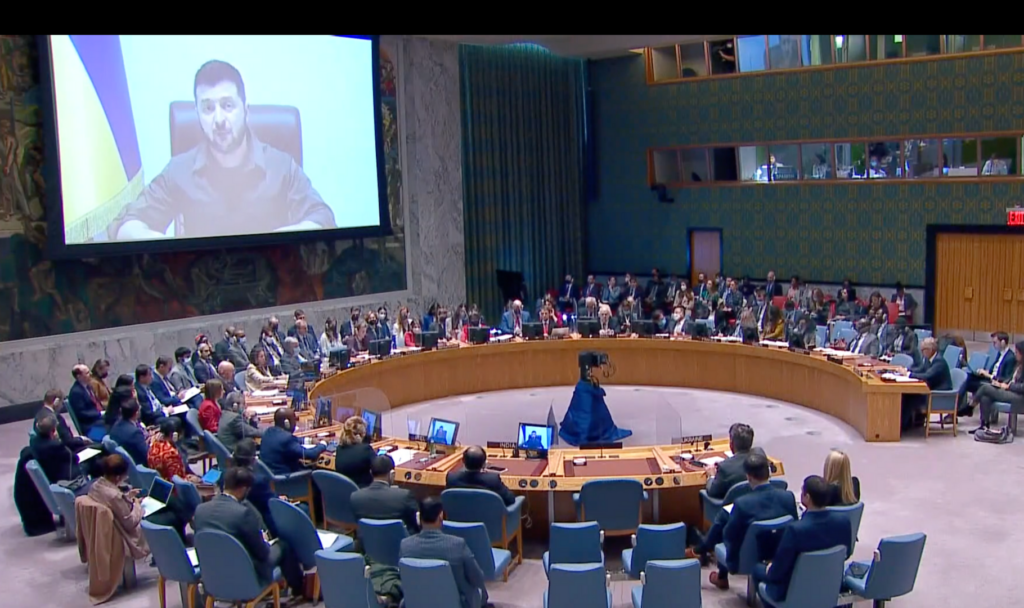Geneva/New York, April 22 – The United Nations condemned the indiscriminate uses of military forces by Russia and “horrors” committed against civilians in Ukraine while the organization’s leader, Secretary-General Antonio Guterres, is preparing to meet separately with leaders of Russia and Ukraine in their capitals, UN spokespersons said.
Guterres will be in Moscow on April 26th and will have a working meeting and lunch with Russian Foreign Minister Sergey Lavrov before meeting with President Vladimir Putin, said Eri Kaneko, an associate spokesperson in New York. Guterres will visit Kiyv on April 28 where he will have a working meeting with Foreign Minister Minister Dmytro Kuleba and will be received by President Volodymyr Zelenskyy.
The requests were made in letters sent separately to the Russian and Ukrainian UN missions in New York on April 19 following unsuccessful calls by UN officials for a humanitarian cease-fire to bring aid to the millions of people caught in the war started by the Russian invasion of Ukraine on February 24.
“The Secretary-General said, at this time of great peril and consequence, he would like to discuss urgent steps to bring about peace in Ukraine and the future of multilateralism based on the Charter of the United Nations and international law,” said spokesperson Stephane Dujarric when the requests were made. “He noted that both Ukraine and the Russian Federation are founding members of the United Nations and have always been strong supporters of this Organization.”
In Geneva, UN High Commissioner for Human Rights Michelle Bachelet provided details of what she called a “horror story” of possible war crimes and abuses committed in Ukraine, citing indiscriminate shelling and bombardment of civilian residential areas, widespread destruction of properties and hundreds of summary executions.
“International humanitarian law has not merely been ignored but seemingly tossed aside,” Bachelet said in a statement in which she condemned the “horrors” committed against civilians, including a missile strike on the train station in Kramatorsk that killed more than 50 civilians and injured scores. She said the attacks are “emblematic of Russian forces’ indiscriminate bombardment of civilian targets” which amount to war crimes. “Our work to date has detailed a horror story of violations perpetrated against civilians.”
OHCHR said 5,381 civilian casualties but actual figures are “considerable higher”
The Office of the UN High Commissioner for Human Rights (OHCHR) recorded 5,381 civilian casualties in the country: 2,435 killed and 2,946 injured from February 24, 2022 when Russian forces launched attacks against Ukraine to April 21, 2022. This included: a total of 2,435 killed (746 men, 469 women, 48 girls, and 66 boys, as well as 70 children and 1,036 adults whose sex is yet unknown)
a total of 2,946 injured (345 men, 274 women, 62 girls, and 67 boys, as well as 157 children and 2,041 adults whose sex is yet unknown)
OHCHR said it “believes the actual figures are considerably higher, as the receipt of information from some locations where intense hostilities have been going on has been delayed and many reports are still pending corroboration.”
In Lviv, West Ukraine, the UN Crisis Coordinator, Assistant Secretary-General Amin Awad told a news conference on April 21 that Ukraine has seen “suffering, devastation, and destruction on a massive scale” in the last two months, UN News reported.
“At least 15.7 million people in Ukraine are now in urgent need of humanitarian assistance and protection, over 5 million people fled Ukraine to seek safety in other countries and another 7.1 million have been internally displaced across the country,” Awad said. “This represents more than 25 per cent of the entire population of Ukraine.”
“The world is shocked by what is happening in Ukraine,” said Awad, calling “deeply disturbing” the treatment of war prisoners and that the fate of civilians in Mariupol remains unknown. He said people living in occupied Kherson are short on food and medicines; Mykolaiv has been without water for seven days; and the devastation of urban centres and civilian infrastructure across the oblasts – especially in Donetska, Luhanska, Khakvska, Kyivska and Chernivska – have disrupted critical services for millions, including water and health care.
The Norwegian Refugee Council: Ukraine Fears of besiegement, bloodshed and displacement in eastern regions
In Oslo, the Norwegian Refugee Council said in a press release that it is deeply worried that intensified fighting in eastern Ukraine till lead to besiegement of entire cities and towns. The immense suffering and bloodshed that engulfed Mariupol may be senselessly repeated elsewhere, as the country marks two months of war.
“The escalation of war in east Ukraine will result in horrific bloodshed and mass displacement from the eastern regions, including Luhansk and Donetsk, re-traumatising communities who have already suffered eight years of hostilities. In some places the escalation may also lead to entire cities being besieged,” warned Jan Egeland, Secretary General of the Norwegian Refugee Council (NRC), on a five-day visit to Ukraine.
“It’s heart-breaking to think about the horrors these people are forced to relive, and to know that we are unable to get lifesaving assistance into many affected areas. We call for an immediate ceasefire to stop this tidal wave of human suffering.”
Facts and figures:
NRC has ongoing operations in Lviv, Ternopil, Luhansk, eastern Ukraine, Poland, Romania, and Moldova. We plan to assist 800,00 displaced people over the coming months.
NRC has been working in Ukraine since 2014 assisting over 700,000 people through its legal aid, food security and livelihoods, WASH and shelter programmes.
12 million people have been displaced since the war began on 24 February – over 7 million inside Ukraine and over 5 million to neighbouring countries.
12 million people inside Ukraine are estimated to need humanitarian aid.
At least 199 health facilities suffering attacks, while hundreds of thousands are now without water or electricity.
United Nations correspondent journalists – United Nations correspondent journalists – United Nations correspondent journalists
United Nations journalism articles – United Nations journalism articles – United Nations journalism articles

